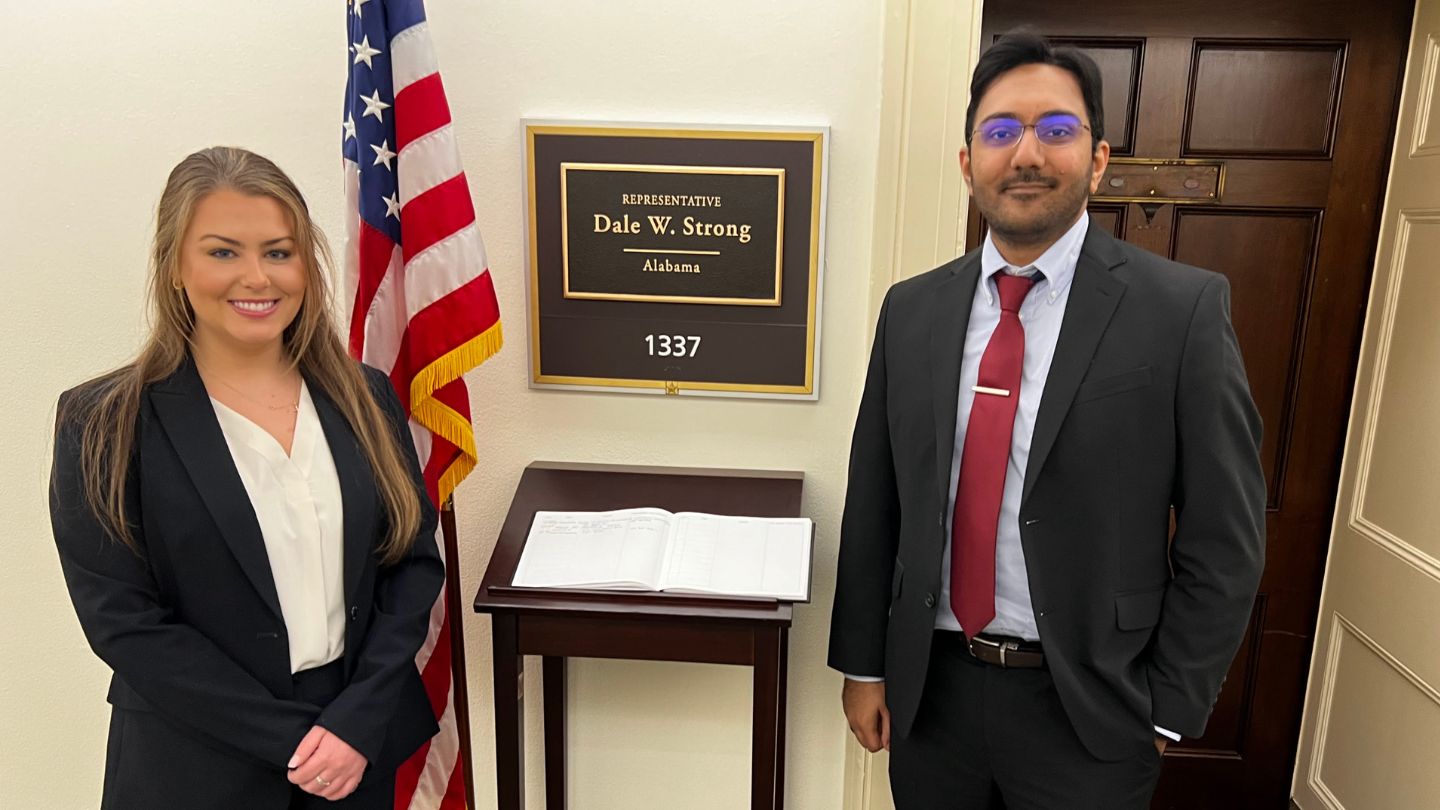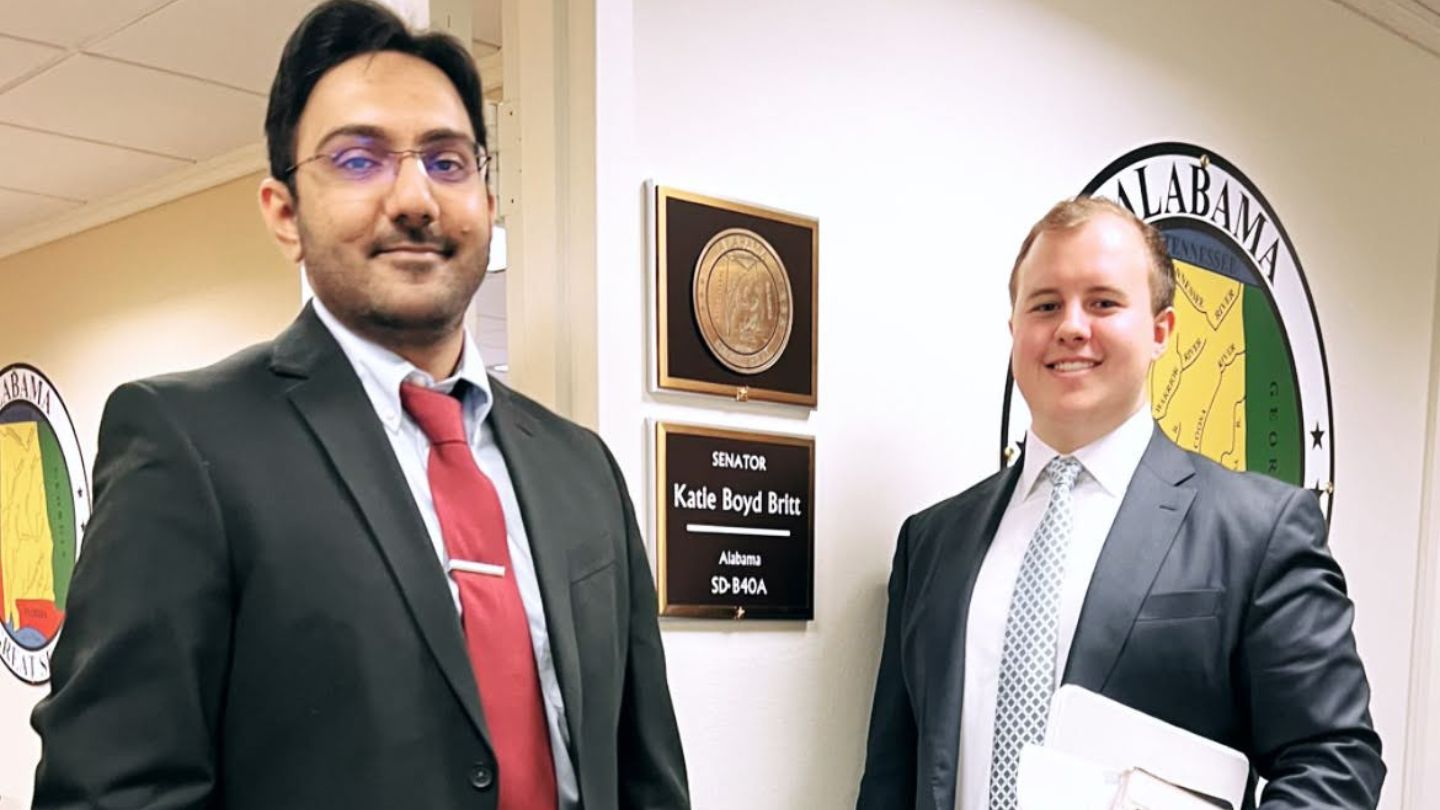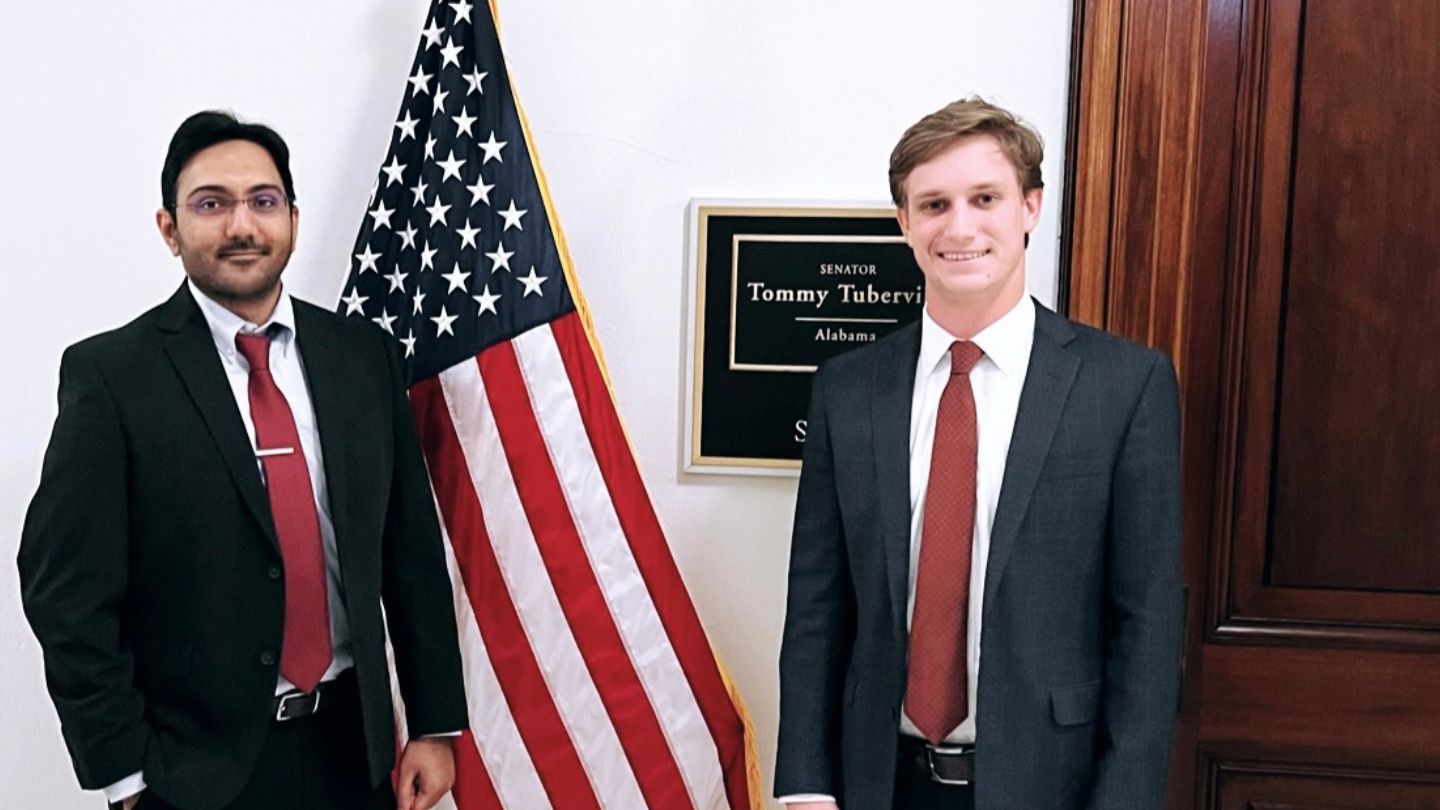
Kirtan Dixit, a doctoral candidate in the Department of Physics and Astronomy at The University of Alabama in Huntsville (UAH), a part of The University of Alabama System, traveled to Washington, D.C., February 28 to March 1 to update members of Congress from Alabama, California and Florida, as well as Congressional science advocates, about current developments in the field of nanophotonics and optoelectronic devices and to discuss the required research funding needed to advance progress.
The meetings organized by SPIE, OPTICA, IEEE Photonics Society, American Physical Society (APS) and Laser Institute of America (LIA) as a part of the National Photonics Initiative (NPI) aimed to provide updates to members of Congress about current developments in the field of nanophotonics and optoelectronic devices and to discuss the required research funding needed to advance progress. Dixit elaborated on the purpose of these meetings, emphasizing the importance of presenting the current state of research to these officials.
In addition to his research work, Dixit holds the position of President at the International Society for Optics and Photonics (SPIE) and OPTICA student chapters at UAH. These societies represent the optics and photonics community in the United States and worldwide.

Dixit (left) with Will Stiers, legislative correspondent in Senator Katie Britt’s office (right).
During his visit, Dixit, a graduate teaching assistant in the Department of Physics & Astronomy in the College of Science who is advised by Dr. Don Gregory, engaged in discussions regarding funding for optics programs across the United States, including those supported by the National Science Foundation (NSF), National Institute of Standards and Technology (NIST), Department of Defense (DOD) and Department of Energy (DOE). In addition, he presented his views on the significance of backing optics programs such as the one offered at UAH, highlighting their potential contributions to initiatives such as the CHIPS and Science Act. Moreover, Dixit expressed his support for the Keep STEM Talent Act.
Dixit's goal during his visit was to illustrate the critical role that optics and photonics play in driving technological advancement. According to him, increased funding for this research area would immensely benefit the broader scientific community.
In highlighting the importance of optics and photonics, Dixit emphasized their versatility and a broad range of applications, from high-speed optical data communication to imaging, displays, life sciences, health care and national security. As a result, he contends that research in this field holds great potential for developing innovative and practical solutions to a wide range of challenges.
Regarding the CHIPS and Science Act, Dixit has expressed his concerns about the limitations of using semiconductors to produce electronic chips. While this approach is currently effective, he believes its ability to keep up with advancements is finite. "Shortly, they may reach the max physical capacity, from where we cannot advance further," Dixit expresses.
He advocates exploring Photonics Integrated Chips (PIC) as an alternative approach to address this challenge. This method uses light in a semiconductor chip rather than electrons to work with integrated chips. According to Dixit, research in the area of PIC is promising, as the speed of light is significantly faster than that of electrons, leading to a faster data processing rate. Therefore, he suggests that a greater focus should be placed on the use of financial support provided by the CHIPS and Science Act in investigating the potential of PIC to support and advance the field of Nanophotonics and Optoelectronic devices.
Dixit emphasizes the educational value of clean rooms, such as the one available at UAH's Optics Building, capable of developing nanoscale devices. The clean room facilities available at universities nationwide should be used to provide students with valuable hands-on experience and exposure to future technologies. However, he notes that access to these facilities is often limited for undergraduate students due to the high maintenance cost. Financial support from the government can enable the universities to expand the use of these facilities for undergraduate education and training. He believes that students working towards their Bachelor's degree in optics, physics, or engineering should also be exposed to this necessary experience.
"UAH's Optical Science and Engineering program should be on the Best Global Universities for Optics list," Dixit says. “The program's numerous contributions to projects for NASA's Marshall Space Flight Center and Redstone Arsenal as evidence of its exceptional quality.”

Dixit (left) with Rusk Henry legislative correspondent in Senator Tommy Tuberville’s office (right).
Additionally, Dixit addressed the Keep STEM Talent Act, expressing the urgency for the U.S. government and educational institutions to invest in doctoral degree scholarships for foreign nationals studying STEM. He argues that it would be a waste of taxpayer dollars and talent if these individuals are unable to stay in the U.S. and apply their knowledge after completing their studies.
He further suggests that, just as the U.S. government is committed to maintaining export control policies on items and products vital to the country's economic interests, it should similarly focus on approaches to retain well-trained human resources in STEM fields. In his opinion, this would enable the U.S. to leverage these individuals' valuable knowledge and skills to bolster the country's economic and technological competitiveness.
The offices of Sen. Katie Britt, Sen. Tommy Tuberville and Representative Dale Strong of Alabama have expressed their support for Dixit's initiatives. Dixit has invited the officials to visit UAH on their next trip to the state, allowing them to tour the facilities and learn about the cutting-edge research being conducted here.
Dixit is optimistic about the potential for UAH to become recognized as one of the top optics schools in the U.S., emphasizing that UAH’s strong foundation and government support can elevate it to the next level.
